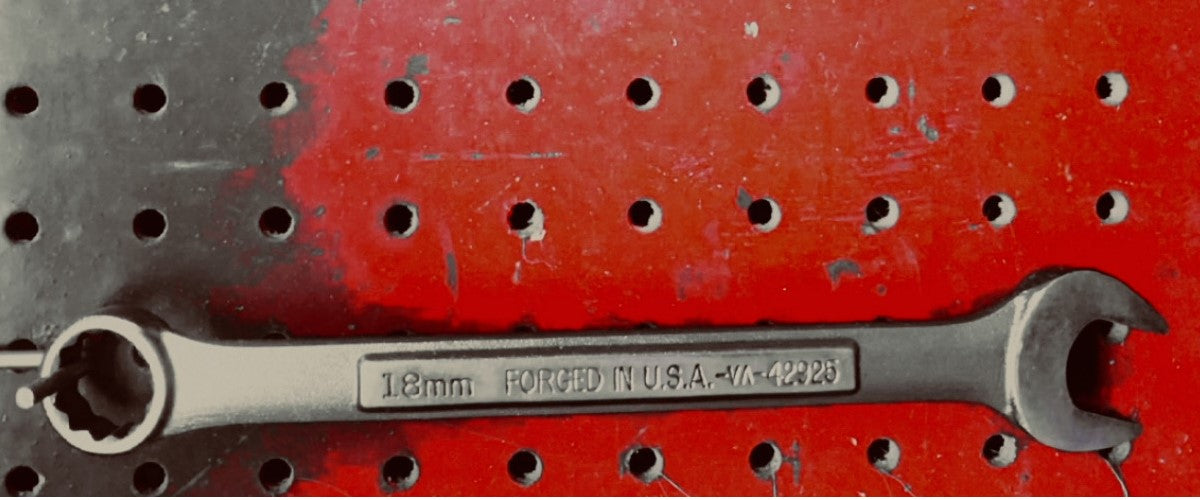As the colder months approach, it’s crucial to prepare your trailer for the winter season. Whether you own a utility trailer, enclosed trailer, car hauler, or dump trailer, taking the time to winterize your trailer ensures that it remains in optimal condition, prolonging its lifespan and keeping it ready for use once spring arrives. Here's a detailed guide on how to prepare your trailer for winter.
- Clean Your Trailer Thoroughly
Before storing your trailer, it’s important to clean it from top to bottom. Dirt, grime, and road salt can cause corrosion, especially on metal components, which can worsen over winter. Follow these steps:
- Wash the Exterior: Use a pressure washer or a hose with soapy water to clean off mud, dirt, and any remaining salt from the trailer's frame and underside.
- Inspect for Rust: While cleaning, inspect the trailer for rust spots or any wear. If you find rust, remove it with a wire brush and apply a rust inhibitor.
- Check the Interior (for enclosed trailers): Ensure that any cargo area is free from debris, moisture, or anything that might lead to mold.
- Inspect and Lubricate Moving Parts
A smooth-operating trailer depends on well-maintained moving parts. Cold weather can cause metal parts to stiffen, leading to wear if not properly lubricated.
- Grease Bearings and Axles: Ensure that all bearings are greased, particularly for trailers that have been on long hauls. Lack of lubrication can lead to bearing failure, especially in cold conditions.
- Lubricate Hinges and Joints: Apply a good-quality lubricant to all hinges, couplers, jacks, and any other moving parts to keep them from seizing up in freezing temperatures.
- Check the Hitch Mechanism: Inspect and lubricate the hitch to ensure it remains functional and doesn’t rust over winter.
- Check the Tires
Tires are especially vulnerable in cold weather, as temperature changes can affect the air pressure and the integrity of the rubber.
- Inspect Tire Pressure: Check the tire pressure using a gauge and inflate to the manufacturer’s recommended PSI. Cold weather can cause the pressure to drop, so it’s essential to keep tires properly inflated.
- Check for Cracks: Look for signs of dry rot or cracks in the tire sidewalls. Winter storage can worsen these conditions if not addressed.
- Consider Tire Covers: If you plan to store the trailer outside, investing in tire covers will protect the rubber from harsh winter elements.
- Protect the Electrical System
Winter can wreak havoc on your trailer’s electrical system, especially if moisture finds its way into the wiring.
- Inspect the Wiring: Check all wiring for cracks, wear, or fraying. Exposure to cold and wet conditions can lead to short circuits.
- Check Lights: Ensure all lights are working, including brake lights, turn signals, and interior lights (for enclosed trailers). Replace any faulty bulbs or fuses.
- Disconnect the Battery (if applicable): If your trailer has a battery-powered system, disconnect and store the battery indoors in a cool, dry place. Charge it periodically during the winter to prevent it from losing its charge completely.
- Protect the Trailer Frame
The trailer frame bears the brunt of winter weather, so it’s essential to take extra precautions.
- Apply a Protective Coating: A coat of wax or a specialized protective spray will help shield the metal frame from corrosion due to moisture and salt exposure.
- Cover the Trailer (if applicable): For extra protection, especially if storing outdoors, invest in a high-quality trailer cover designed for your specific trailer type. A breathable cover is best, as it will prevent moisture buildup, which can lead to mold or rust.
- Winterize the Brakes
If your trailer has brakes, it’s important to ensure they are prepared for winter as well.
- Inspect Brake Pads and Rotors: Check the brake pads for wear and replace them if necessary. Make sure the rotors are in good condition and free from excessive rust.
- Check Brake Fluid Levels: Ensure that the brake fluid is topped up and that there are no leaks in the system. Cold temperatures can affect the viscosity of brake fluid, so proper maintenance is key.
- Prevent Moisture Damage
Moisture is one of the biggest threats to trailers during winter storage, leading to rust, mold, and mildew.
- Ventilation (for enclosed trailers): Keep vents slightly open to allow air circulation and prevent moisture buildup inside the trailer. Make sure the vents are waterproof.
- Use Moisture Absorbers: Place moisture-absorbing packets or a dehumidifier in the trailer to reduce humidity levels.
- Secure and Store the Trailer Properly
Once everything is clean, lubricated, and inspected, the final step is to store your trailer securely.
- Park on a Solid Surface: Ideally, store the trailer on concrete or asphalt to avoid sinking into the ground during snow or rain. If parking on grass or dirt, use blocks under the tires to prevent contact with wet ground.
- Elevate the Trailer: Use jack stands to lift the trailer off the ground slightly. This reduces pressure on the tires and prevents flat spots from forming.
- Lock the Trailer: Use hitch locks or wheel locks to secure your trailer and prevent theft while in storage.
Conclusion
Taking the time to properly winterize your trailer is a valuable investment that will help extend its life and ensure it’s ready for action when the weather warms up. Regular maintenance, thorough cleaning, and protection against the elements are essential steps in preparing your trailer for winter. By following these guidelines, you’ll avoid costly repairs and ensure your trailer remains in excellent condition year-round.
Make sure you revisit your trailer periodically during the winter to check for any issues, such as snow buildup or weather damage. Your trailer will thank you when it’s time to hit the road again!

